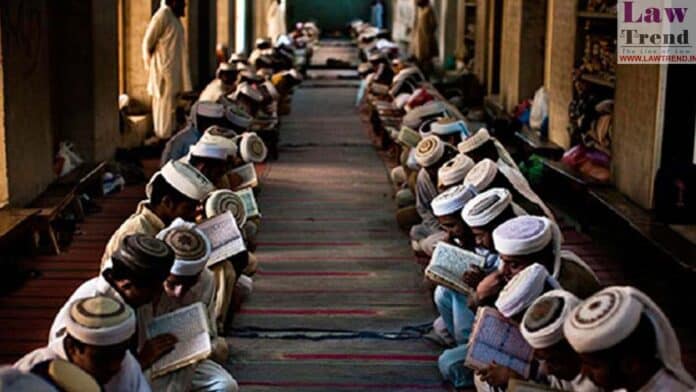In a pivotal moment, the Supreme Court of India has reserved its verdict on the pleas challenging the Allahabad High Court’s decision that struck down the Uttar Pradesh Madrasa Education Act of 2004 as unconstitutional. The bench, led by Chief Justice D Y Chandrachud, alongside Justices J B Pardiwala and Manoj Misra, held extensive deliberations over two days on the matter.
The Chief Justice remarked, “Religious instruction is not exclusive to Muslims; our country is a melting pot of cultures, civilizations, and religions, and we should strive to preserve that diversity.” The discussions highlighted the broader context of religious education in India, which includes not only Madrasas but also Vedic patshalas among other forms of religious instruction.
The debate centered around the constitutionality of regulating religious education institutions through state legislation. Chief Justice Chandrachud questioned, “If Parliament enacts a law to regulate these institutions to establish certain standards, what is wrong with that?” He drew parallels with various traditional medicine systems in India, such as Ayurveda, Siddha, and Unani, which are regulated by the state, underscoring that similar oversight for educational institutions does not necessarily infringe on religious freedoms.
In May, the Supreme Court stayed the High Court’s ruling that declared the Act unconstitutional, prompting a series of legal challenges from various stakeholders. Notable advocates, including Abhishek Manu Singhvi, Salman Khurshid, and Menaka Guruswamy, argued on behalf of the petitioners, supporting the Act’s intent to integrate Madrasa education within the broader educational framework of India.
Senior Advocate Mukul Rohatgi, representing the petitioners, argued that under Article 28(2) of the Constitution, religious instruction in state-managed educational establishments is permissible if they are created under an endowment or trust that requires such instruction. He emphasized the voluntary nature of religious education under Article 28(3), which allows students to opt in without compulsion.
The discourse also addressed the Allahabad High Court’s approach to the issue, with Rohatgi critiquing its decision on the grounds that it unfairly targets religious instruction in Madrasas, potentially harming minority rights.
In response to arguments that the Madrasa Act does not foster secular education, Chief Justice Chandrachud noted that regulating Madrasas could be in the national interest, as it would prevent these institutions from operating in isolation without state oversight. He stressed that religious instruction is a part of India’s diverse educational landscape, applicable to all religious communities.




